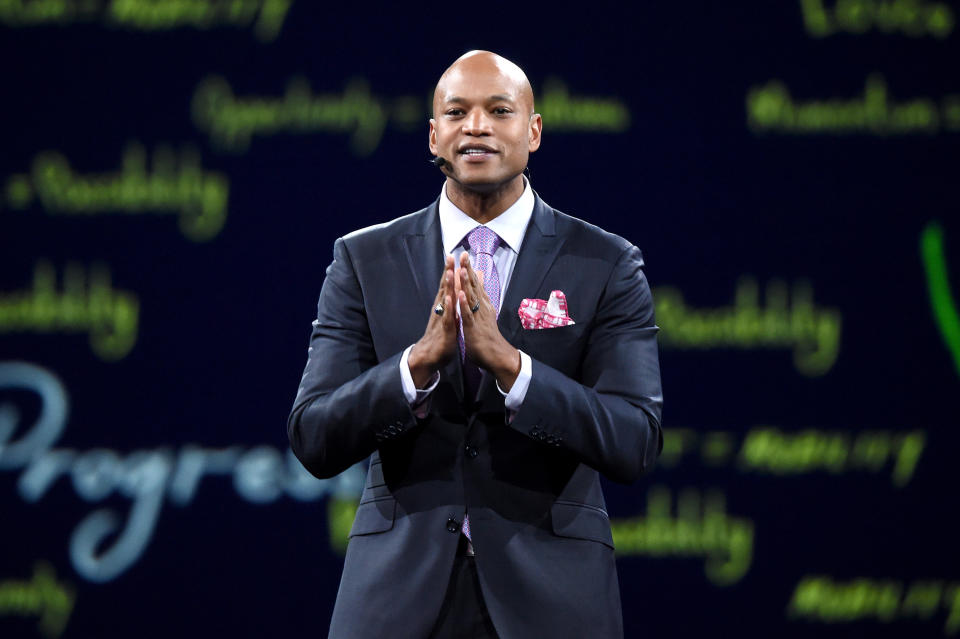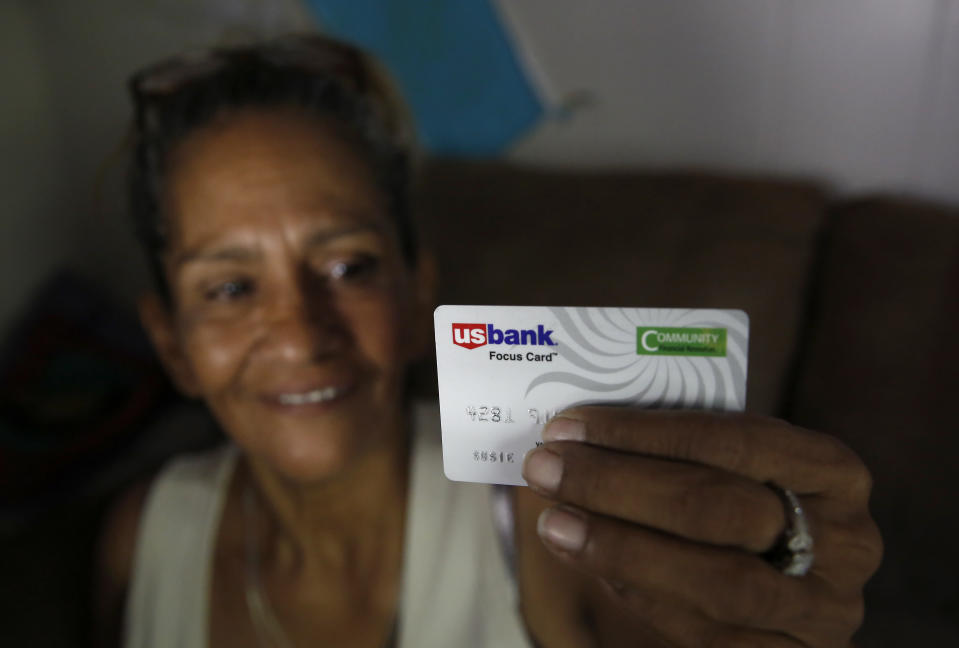How the coronavirus pandemic boosted the idea of universal basic income to fight poverty
Universal Basic Income, or UBI, was mostly a fringe idea just a year ago, but after Congress approved sending $1,200 checks to qualifying Americans through the Coronavirus Aid, Relief, and Economic Security (CARES) Act, the fringe idea is suddenly gaining steam.
As an idea already being tested in cities and towns in the U.S. including many programs piloted by advocacy group Mayors for a Guaranteed Income, more momentum is building during the pandemic to embrace the concept of leaning on cash handouts over more complicated and restrictive welfare programs.
That shift is even playing out at some of America’s largest charitable institutions, according to Wes Moore, the chief executive of New York City-based philanthropic organization Robin Hood Foundation.
“I think we've been incredibly encouraged by what we've seen from some individual states and individual cities,” Moore said at the Yahoo Finance All Markets Summit, adding that about half of the $60 million Robin Hood raised in relief funds so far this year has gone toward direct cash assistance. “So we have devoted a good portion of our entire relief fund, really on just giving people cash support and cash assistance at a time and in a mechanism where we feel that they not only need it most, but we feel that we're going to give them the greatest amount of autonomy to know what the best and the most important way to spend it at that time.”

While a Pew Research survey in August revealed that Americans are roughly split on the idea of Universal Basic Income, the idea enjoys wide majority support by younger Americans and minorities, mainly Blacks and Hispanics, that make up a disproportionate share of those living below the poverty line. Proponents of UBI point to that fact as an important endorsement considering it comes from demographic groups more likely to have experienced or been dissatisfied with existing social welfare programs.
Saint Paul, Minn. Mayor Melvin Carter, one of the founding mayors of Mayors for a Guaranteed Income, experienced the disappointment of those other social benefit programs first-hand and told Yahoo Finance it’s one of the reasons he launched a UBI pilot program for 150 families and became an advocate for reducing strings tied to welfare. As the father of a newborn daughter who had special dietary restrictions, Carter said he remembers not being able to spend the government supplement money he received on soy milk or almond milk.
“It was really offensive, but more so that’s what happens when we create these resources when we say from City Hall, ‘We know what families need,’” he said. “For the first time this represents us saying not in the great wisdom of City Hall we know what’s best for your family, but it’s saying you know what’s best for your family and we want to make sure you have the ability to do that.”
Between the CARES Act approving relief checks for qualifying Americans and encouraging data from another UBI pilot program in Stockton, Calif., which disproved criticisms from detractors that the money is used for non-essentials, the idea has proven to be a fast and targeted approach to quickly get relief out to those who need it most. Due to the pandemic, the Stockton UBI program was recently extended as the mayor there noted the outsized need for those near the poverty line continues despite the broader economic recovery. It also was shown to help at least one recipient, a 48-year-old mother of two, quit her second job as a DoorDash delivery worker.

As Moore notes, despite the fact that up to $1,200 checks were sent to Americans making less than roughly $100,000 through the CARES Act, there were still millions of Americans who would’ve otherwise qualified but were excluded from receiving support.
“People say, ‘Well, you know, there was a cash assistance element that came out of the CARES Act.’ That's true, but millions of people were left out of that,” he said. “For people who were undocumented, even if you were working and paying taxes, you were left out of that conversation. If you're part of a mixed status household, you were left out of that conversation. If you were working, but weren't making enough money to hit the income tax filing threshold, you were left out of that conversation.”
Nonetheless, it is interesting to see philanthropic institutions like Moore’s Robin Hood lean so heavily into the idea of basic cash assistance just months after former Democratic presidential candidate Andrew Yang brought it to the national stage. Yang's nonprofit, Humanity Forward, has similarly been working in Hudson, N.Y., on a pilot program of its own to provide $500 a month to families for five years. As Carter says, pilot programs like Yang’s and his in Saint Paul that depend in-part on non-government funds are built for the larger goal to continue to build the momentum for a larger national program.
“We know this isn’t something that we can figure out how to sustain realistically within the limits of our city budgets,” he said about his program that is funded both by state funds through the CARES Act and private philanthropic donations. “But our point is to be able to show, to be able to demonstrate what happens when you invest directly in families so we can continue to make the case for this policy at the federal level.”
Zack Guzman is the host of YFi PM as well as a senior writer and on-air reporter covering entrepreneurship, cannabis, startups, and breaking news at Yahoo Finance. Follow him on Twitter @zGuz.
Read the latest financial and business news from Yahoo Finance
Follow Yahoo Finance on Twitter, Facebook, Instagram, Flipboard, SmartNews, LinkedIn, YouTube, and reddit.
Find live stock market quotes and the latest business and finance news
For tutorials and information on investing and trading stocks, check out Cashay


